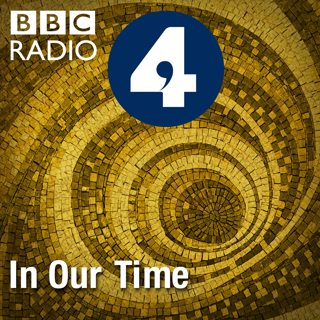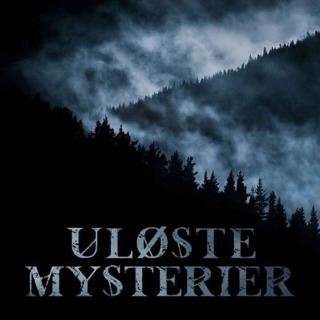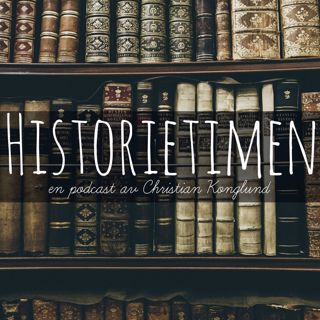
Automata
Melvyn Bragg and guests discuss the history of real and imagined machines that appear to be living, and the questions they raise about life and creation. Even in myth they are made by humans, not born. The classical Greeks built some and designed others, but the knowledge of how to make automata and the principles behind them was lost in the Latin Christian West, remaining in the Greek-speaking and Arabic-speaking world. Western travellers to those regions struggled to explain what they saw, attributing magical powers. The advance of clockwork raised further questions about what was distinctly human, prompting Hobbes to argue that humans were sophisticated machines, an argument explored in the Enlightenment and beyond.The image above is Jacques de Vaucanson's mechanical duck (1739), which picked up grain, digested and expelled it. If it looks like a duck...with Simon Schaffer Professor of History of Science at Cambridge UniversityElly Truitt Associate Professor of Medieval History at Bryn Mawr CollegeAnd Franziska Kohlt Doctoral Researcher in English Literature and the History of Science at the University of OxfordProducer: Simon Tillotson
20 Sep 201852min

The Iliad
Melvyn Bragg and guests discuss the great epic poem attributed to Homer, telling the story of an intense episode in the Trojan War. It is framed by the wrath of the Greek hero Achilles, insulted by his leader Agamemnon and withdrawing from the battle that continued to rage, only returning when his close friend Patroclus is killed by the Trojan hero Hector. Achilles turns his anger from Agamemnon to Hector and the fated destruction of Troy comes ever closer. With Edith Hall Professor of Classics at King's College LondonBarbara Graziosi Professor of Classics at Princeton UniversityAnd Paul Cartledge A.G. Leventis Senior Research Fellow and Emeritus Professor of Greek Culture at Clare College, CambridgeProducer: Simon Tillotson.
13 Sep 201848min

William Morris
Melvyn Bragg and guests discuss the ideas of William Morris, known in his lifetime for his poetry and then his contribution to the Arts and Crafts movement, and increasingly for his political activism. He felt the world had given in to drudgery and ugliness and he found inspiration in the time before industrialisation, in the medieval life which was about fellowship and association and ways of working which resisted the division of labour and allowed the worker to exercise his or her imagination. Seeing a disconnection between art and society, his solution was revolution which in his view was the only way to reset their relationship.The image above is from the Strawberry Thief wallpaper design by William Morris.With Ingrid Hanson Lecturer in 18th and 19th Century Literature at the University of ManchesterMarcus Waithe University Senior Lecturer in English Literature at the University of Cambridge and Fellow of Magdalene CollegeAndJane Thomas Professor of Victorian and Early 20th Century Literature at the University of HullProducer: Simon Tillotson.
5 Jul 201853min

The Mexican-American War
Melvyn and guests discuss the 1846-48 conflict after which the United States of Mexico lost half its territory to the United States of America. The US gained land covered by the states of Texas, Utah, California, New Mexico, Nevada, Arizona and part of Colorado. The outcome had a profound impact on Native Americans and led to civil war in defeated Mexico. It also raised the question of whether slavery would be legal in this acquired territory - something that would only be resolved in the US Civil War, which this victory hastened.With Frank Cogliano Professor of American History at the University of EdinburghJacqueline Fear-Segal Professor of American and Indigenous Histories at the University of East AngliaAndThomas Rath Lecturer in Latin American History at University College LondonProducer: Simon Tillotson.
28 Jun 201849min

Echolocation
Melvyn Bragg and guests discuss how some bats, dolphins and other animals emit sounds at high frequencies to explore their environments, rather than sight. This was such an unlikely possibility, to natural historians from C18th onwards, that discoveries were met with disbelief even into the C20th; it was assumed that bats found their way in the dark by touch. Not all bats use echolocation, but those that do have a range of frequencies for different purposes and techniques for preventing themselves becoming deafened by their own sounds. Some prey have evolved ways of detecting when bats are emitting high frequencies in their direction, and some fish have adapted to detect the sounds dolphins use to find them. With Kate Jones Professor of Ecology and Biodiversity at University College LondonGareth Jones Professor of Biological Sciences at the University of BristolAndDean Waters Lecturer in the Environment Department at the University of YorkProducer: Simon Tillotson.
21 Jun 201851min

Montesquieu
Melvyn Bragg and guests discuss the ideas of Charles-Louis de Secondat, Baron de La Brède et de Montesquieu (1689-1755) whose works on liberty, monarchism, despotism, republicanism and the separation of powers were devoured by intellectuals across Europe and New England in the eighteenth century, transforming political philosophy and influencing the American Constitution. He argued that an individual's liberty needed protection from the arm of power, checking that by another power; where judicial, executive and legislative power were concentrated in the hands of one figure, there could be no personal liberty. With Richard Bourke Professor in the History of Political Thought at Queen Mary, University of LondonRachel Hammersley Senior Lecturer in Intellectual History at Newcastle UniversityAndRichard Whatmore Professor of Modern History at the University of St Andrews and Director of the St Andrews Institute of Intellectual HistoryProducer: Simon Tillotson.
14 Jun 201849min

Persepolis
Melvyn Bragg and guests discuss the role of the great 'City of the Persians' founded by Darius I as the ceremonial capital of the Achaemenid Empire that stretched from the Indus Valley to Egypt and the coast of the Black Sea. It was known as the richest city under the sun and was a centre at which the Empire's subject peoples paid tribute to a succession of Achaemenid leaders, until the arrival of Alexander III of Macedon who destroyed it by fire supposedly in revenge for the burning of the Acropolis in Athens.The image above is a detail from a relief at the Apadana, the huge audience hall, and shows a lion attacking a bull.With Lloyd Llewellyn-Jones Professor of Ancient History at Cardiff UniversityVesta Sarkhosh Curtis Curator of Middle Eastern Coins at the British MuseumAndLindsay Allen Lecturer in Greek and Near Eastern History at King's College LondonProducer: Simon Tillotson.
7 Jun 201851min

Henrik Ibsen
Melvyn Bragg and guests discuss the great Norwegian playwright and poet, best known for his middle class tragedies such as The Wild Duck, Hedda Gabler, A Doll's House and An Enemy of the People. These are set in a world where the middle class is dominant and explore the qualities of that life, its weaknesses and boundaries and the ways in which it takes away freedoms. It is the women who fare the worst in this society, something Ibsen explored in A Doll's House among others, a play that created a sensation with audiences shocked to watch a woman break free of her bourgeois family life to find her destiny. He explored dark secrets such as incest and, in Ghosts, hereditary syphilis, which attracted the censors. He gave actresses parts they had rarely had before, and audiences plays that, after Shakespeare, became the most performed in the world.With Tore Rem Professor of English Literature at the University of OsloKirsten Shepherd-Barr Professor of English and Theatre Studies and Tutorial Fellow, St Catherine's College at the University of OxfordAnd Dinah Birch Professor of English Literature and Pro-Vice Chancellor for Cultural Engagement at the University of LiverpoolProducer: Simon Tillotson.
31 Mai 201849min





















